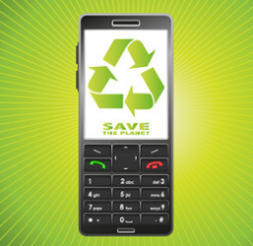Charities that encourage supporters to donate to their cause by sending in their old mobile phones for recycling look set to be stymied by new rules on the transport of lithium ion batteries.
But the lobbying body that represents mobile phone operators and recyclers is hoping that affected charities will add their voices to the campaigning effort to secure the establishment of a viable alternative scheme.
According to the Federation of Communication Services (FCS), new postal regulations introduced last month will mean that the familiar waxed-paper reply-paid envelope schemes that many charities employ for mobile phone recycling will be phased out, as products containing lithium ion batteries can no longer be dropped into postboxes.
Because Royal Mail moves a lot of post by air, and new aviation regulations forbid lithium ion batteries from being carried in the hold, the envelope recycling schemes become unfeasible.
FCS represents the mobile phone operators and recycling outfits, and has already been working to understand the changes and devise an appropriate alternative. Its chief executive Chris Pateman told civilsociety.co.uk he is currently trying to establish how many charities use these schemes, “but my industry colleagues reckon it’s in the hundreds”.
The new rules state that these batteries must be packed in a prescribed manner – wrapped in bubble wrap and then placed inside a suitable rigid box. But members of the public are highly unlikely to go to the trouble of doing this, and charities will be unable to afford to send out volumes of suitable packaging, Pateman said.
“At the moment, it’s easy enough to stick a pre-printed envelope as an insert in a magazine. You can’t really do that with a box,” he said.
Alternative delivery option
He said the best alternative option settled upon by his members so far is for Royal Mail to set up a separate delivery stream, which continues to accept mobile phones in envelopes and transports them by road or rail when capacity allows.
While it might take longer for the package to reach the recycler, this is not too problematic: “What matters is that there is an easy process whereby consumers can recycle their mobile phones by sticking them in an envelope and dropping them in the post,” Pateman said.
“If you ask them to remove the batteries, you simply pass the battery recycling responsibility back to the consumer – which means, in practice, you’ll just end up with a load more batteries going to landfill via the household waste stream, which flies in the face of the whole recycling ethos anyway.”
Pateman said that the Royal Mail has been listening to the industry’s concerns and accepts that the new rules will adversely affect mobile phone recycling. “But I suspect we are going to need a few voices from the charity sector to help us get these points across,” he said.

| Want access to all civilsociety.co.uk content?Subscribers gain access to all expert advice, analysis, surveys, special reports and the full archive of content from as little as £43.20 per year. Find out more... |









